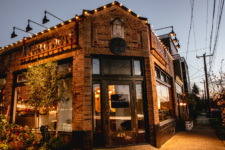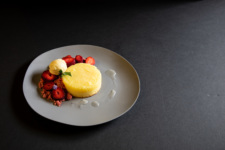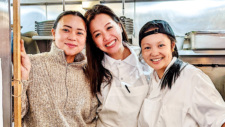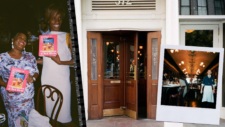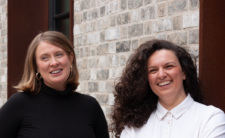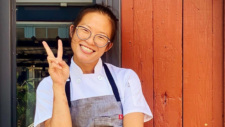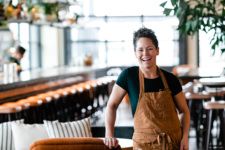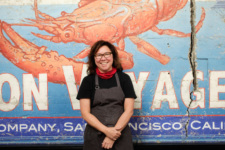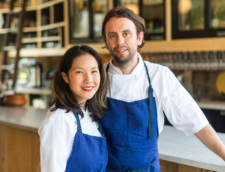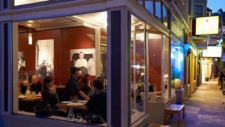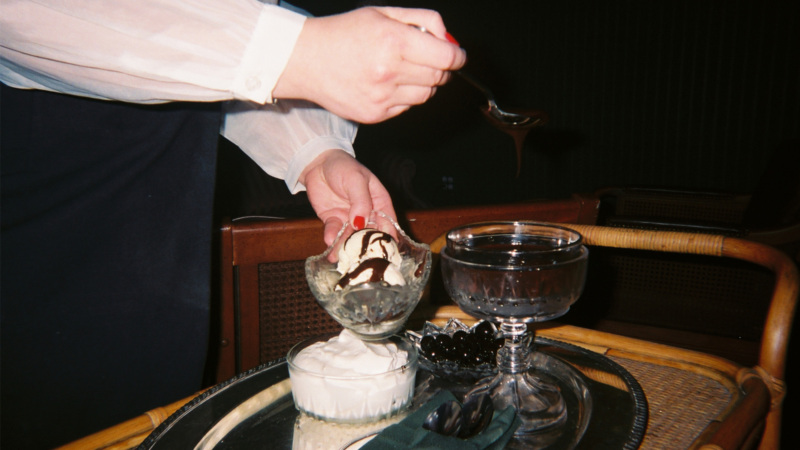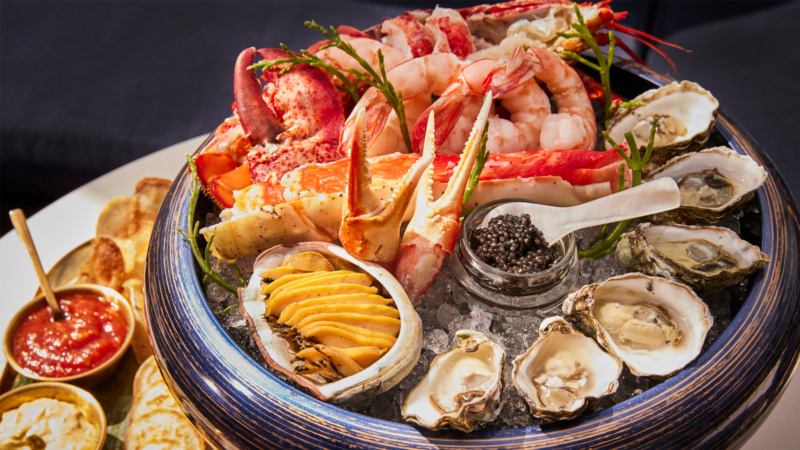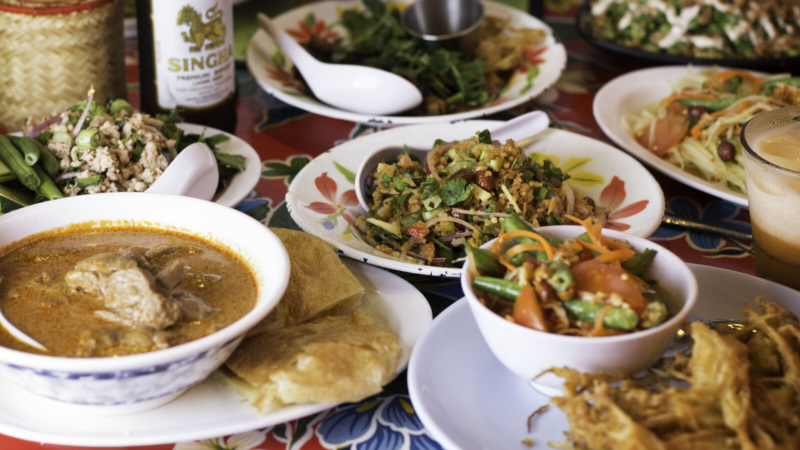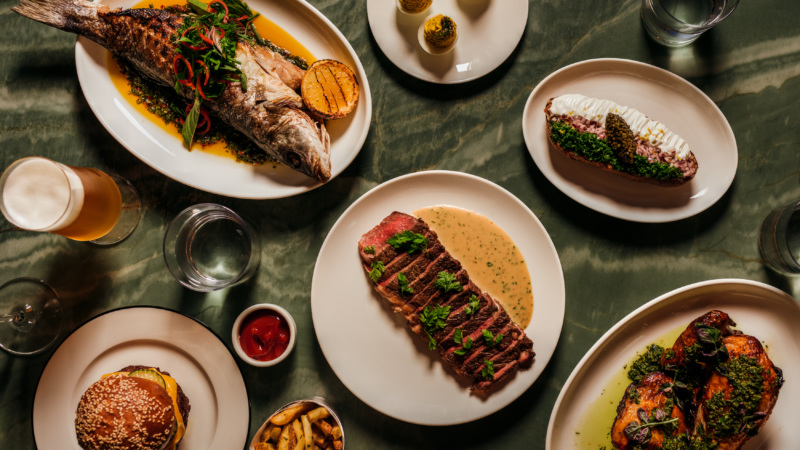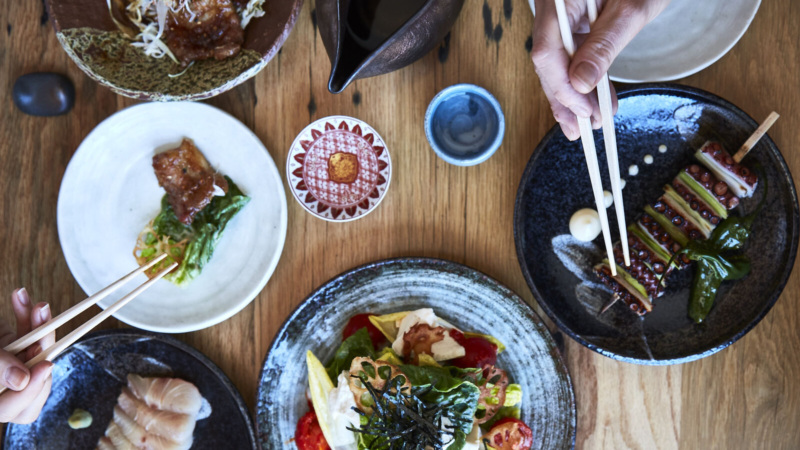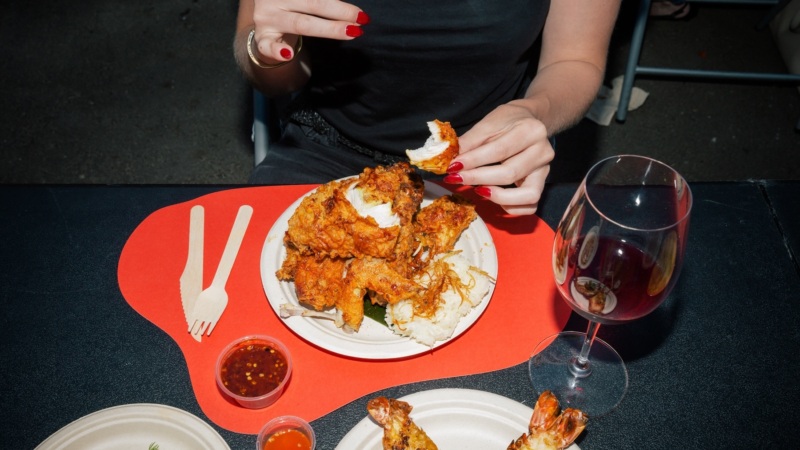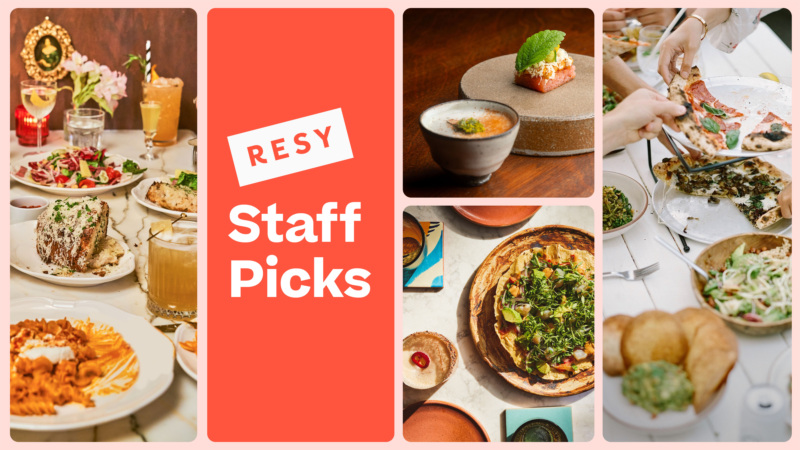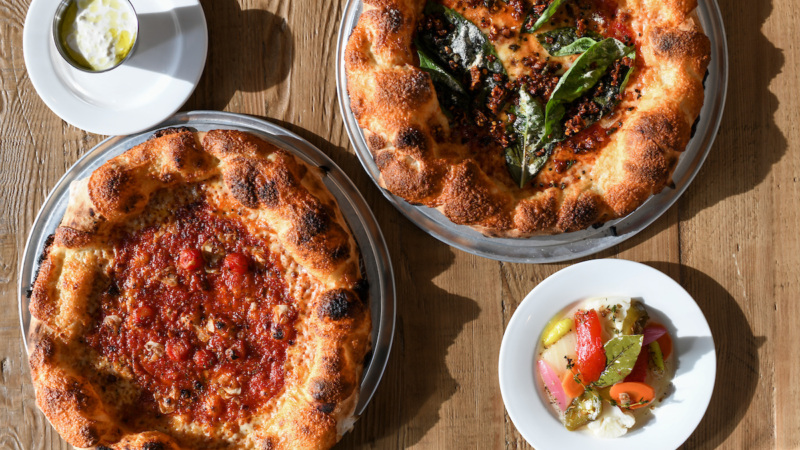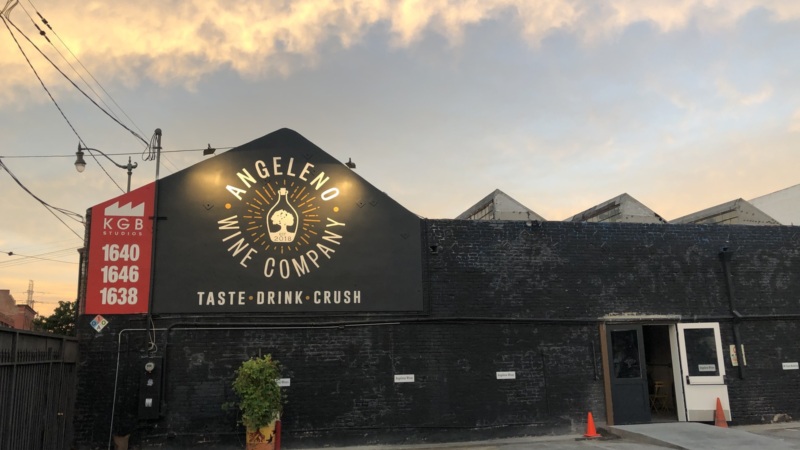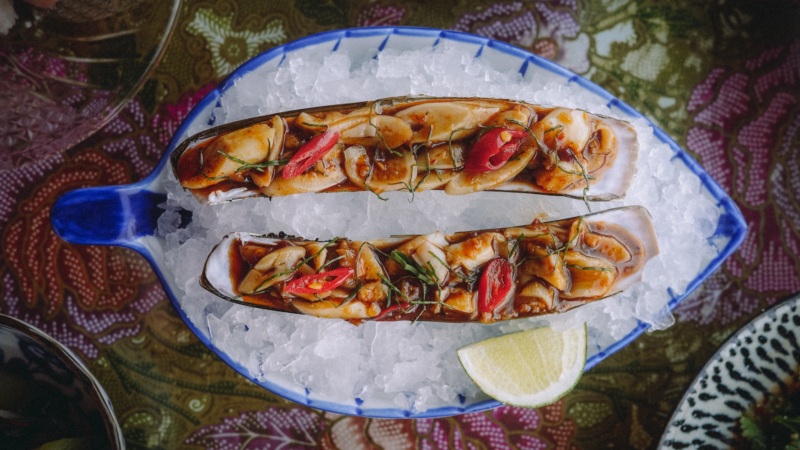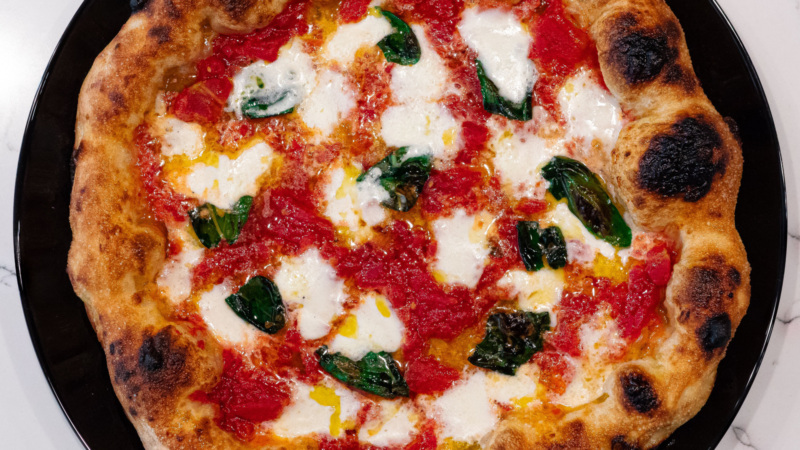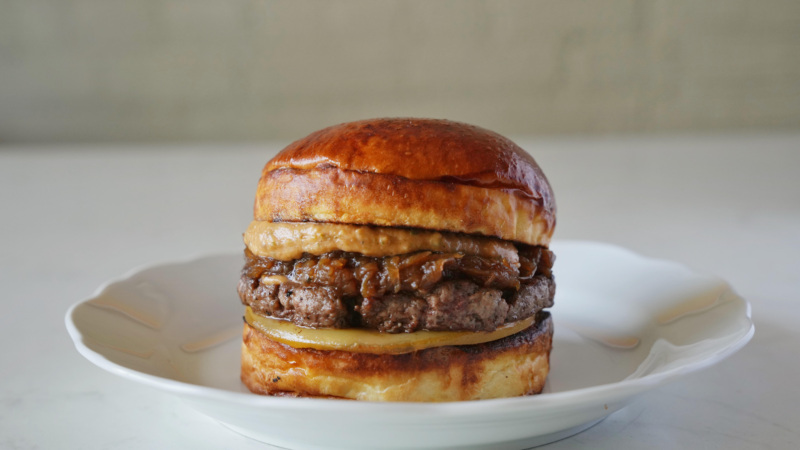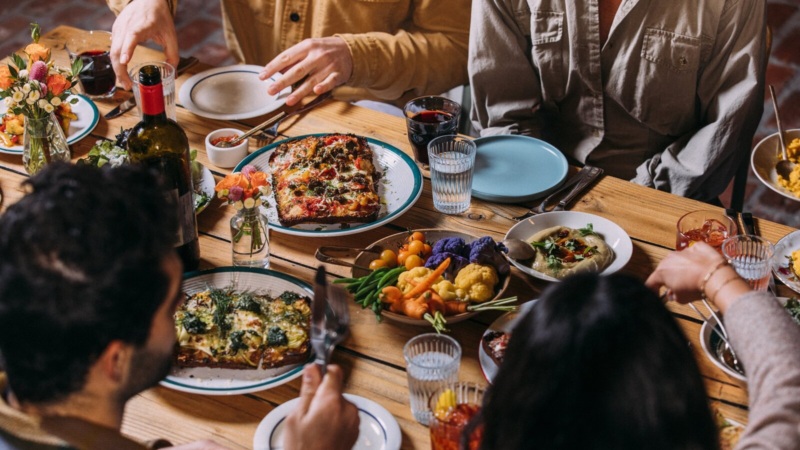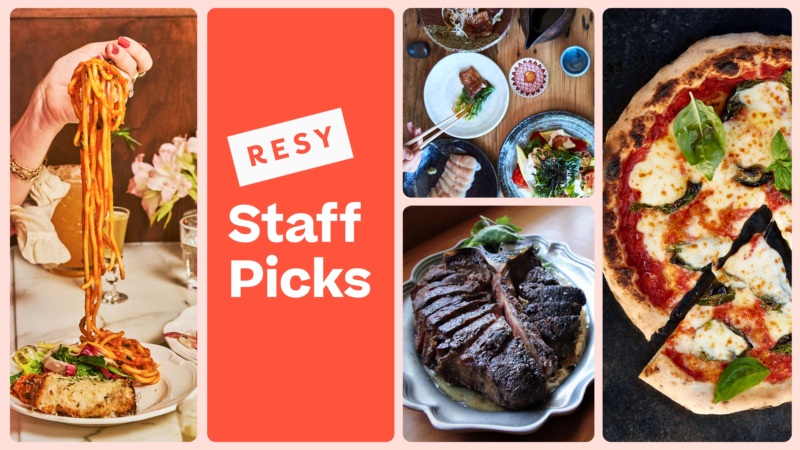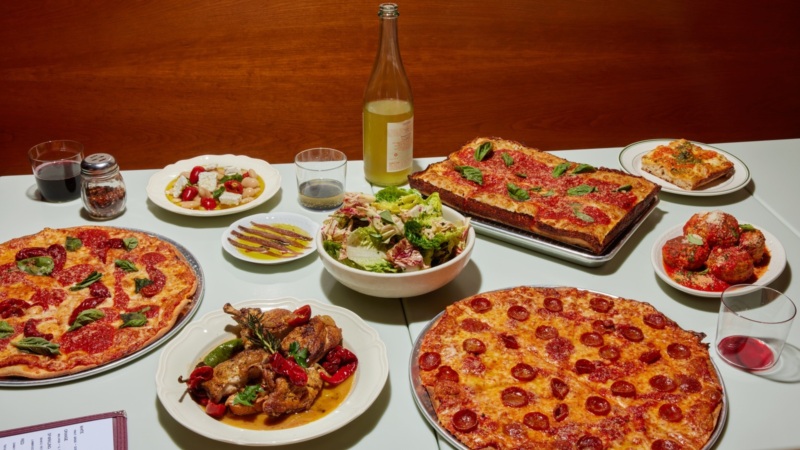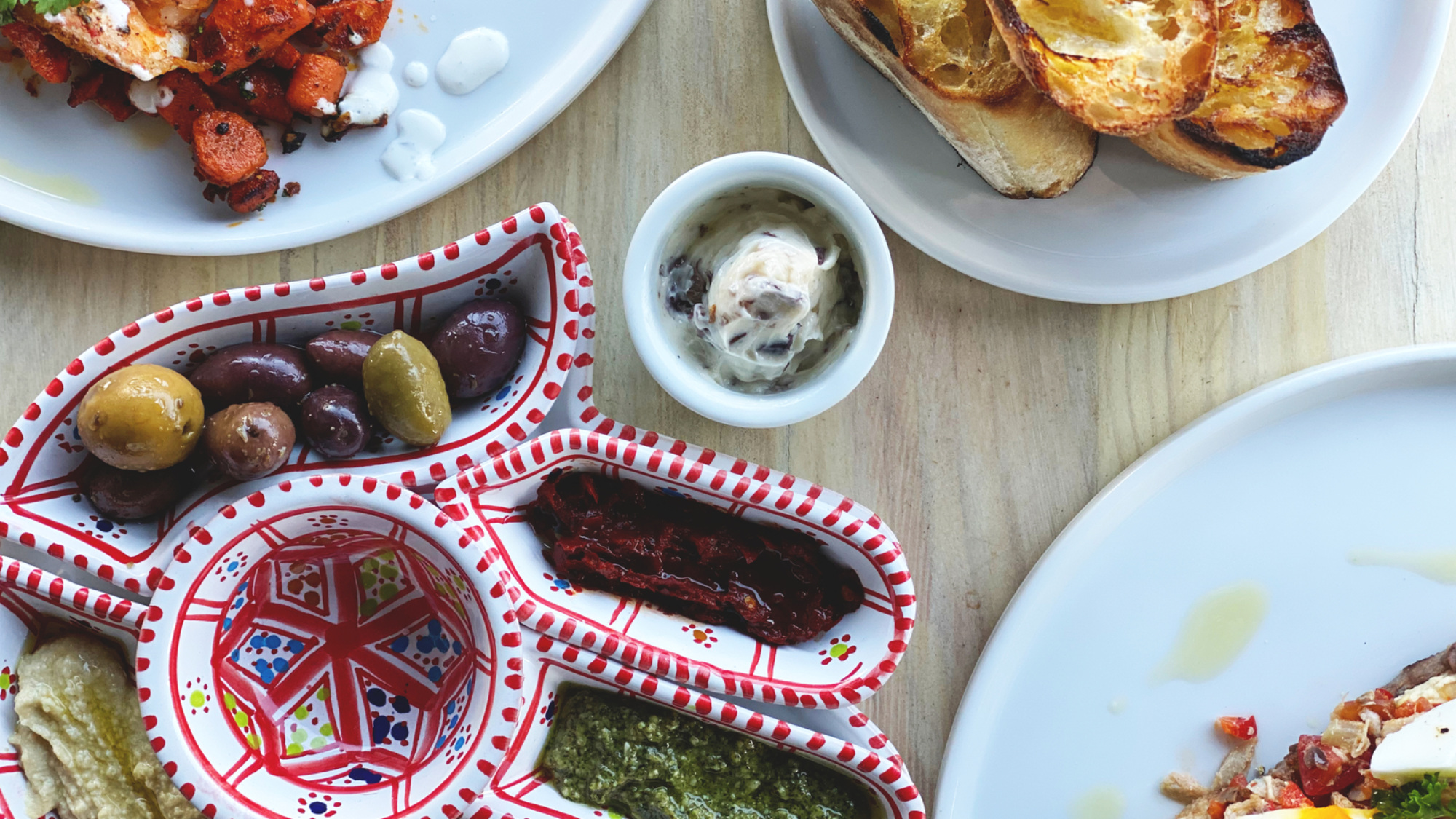
At Barsha, Tunisian Cuisine Is an Homage to Matriarchs
The story of Barsha, a charming, family-run Tunisian restaurant in Hermosa Beach, begins in Las Vegas. Specifically at Caesars Palace, where the chef Lenora Manouri met her husband, Adnen, a seasoned member of the front-of-house staff. They fell in love, and eventually moved back to Lenora’s native Los Angeles. In 2012, the couple started a family and opened Barsha Wines, a wine shop and bar in Manhattan Beach, partially inspired by Adnen’s Tunisian upbringing. In 2019, as the parents of two young daughters, they opened a restaurant, also called Barsha, in Hermosa Beach. It’s here that Lenora is able to explore her own approach to the Tunisian cuisine she came to love through trips to visit Adnen’s family and time spent cooking with his mother.
We sat down with Lenora to talk about cooking Tunisian cuisine in South Bay, how her food pays homage to the matriarchs in her family, and why Barsha is a family restaurant. Adnen joined for the conversation, and chimed in as well.
Barsha means “abundance” in Tunisian. Why did you choose that word to name your businesses?
Lenora Marouani: It’s one of the first words I learned in Tunisian dialect. I used it a whole lot, because I didn’t know the language. We were sitting at a coffee shop one day before we opened up the first location and that name kept on popping up in my head. We love the flow, and it just made sense. “Abundance” means a lot to both of us, because to the outside world, we come from nothing, so to speak. I think that anyone has the ability to have an abundant life, no matter where they come from.
What does it mean to you to be cooking Tunisian food in Los Angeles?
Adnen Marouani: We came from different backgrounds. She was trained as a French chef. I am actually trained as an Italian chef, but also I’m in the wine scene. I don’t cook now. It’s chef Lenora’s show. We were lucky to get to cook with my mother, who came down before we opened the restaurant and trained us. It’s fun to introduce people to Tunisian flavors, which is spice without being spicy. That means turmeric, caraway, coriander, smoked paprika, harissa, and because we’re in the Mediterranean, it’s all a melting pot. We have pasta. We have our version of moussaka, which is like a Greek-style vegetarian lasagna.
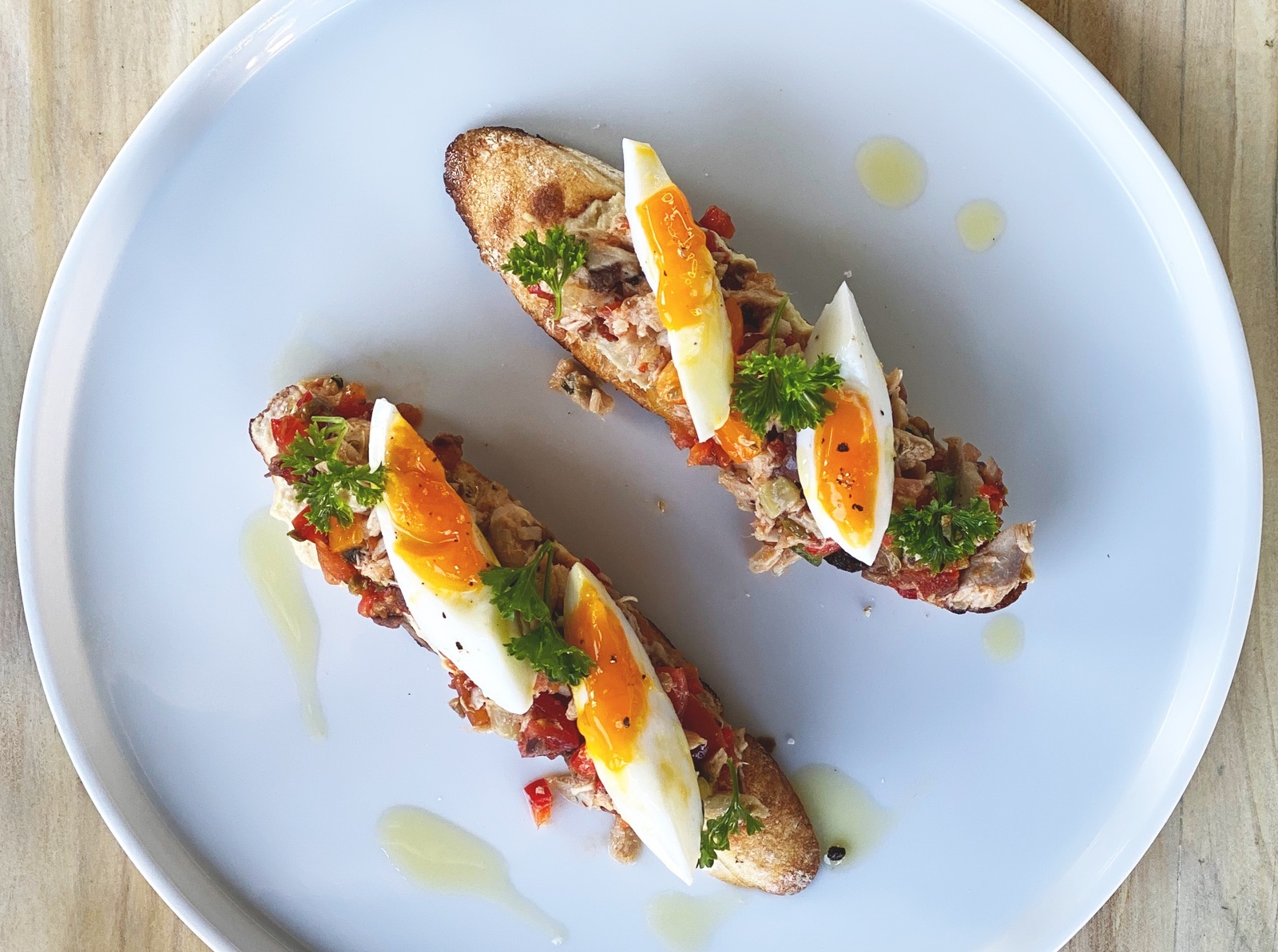
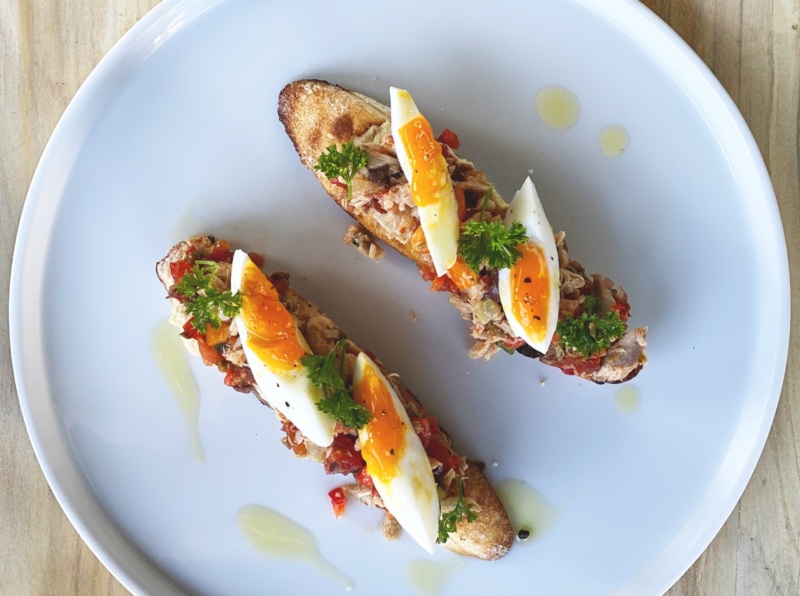
But your food also encompasses other inspirations from your cultural background, and your travels?
LM: Our relationship started in Las Vegas, which is in itself a melting pot of different cultures. But early on in our relationship, [Adnen] worked for a cruise ship and traveled abroad often. Then soon after that, we went to Tunisia, and we took a cross-country trip to Europe. It means a lot to incorporate flavors from our travels because that was the beginning of us, and there are a lot of memories attached to that time. To be able to experience something new and for it to leave a taste in your mouth, and then to be able to execute it on your own terms, is such a cool way to relive those moments.
Can you walk me through a dish or two that encapsulates your cuisine?
LM: I would say our fried chicken. Super crispy.
AM: Which is only available on Sunday!
LM: It’s a traditional buttermilk recipe, and then in the buttermilk itself, I put harissa and other Tunisian spices. We brine the chicken in that so the flavors really seep in, so you’re not just getting all the flavor on the crust. That’s an example of how I’m trying to understand my roots. I’m half Black so fried chicken is definitely on that list. This whole journey is about learning about our cultures. I think one of the best ways you can get in tune with who you really are is by delving into recipes that connect you to your ancestors.
Also our Tunisian bruschetta. We put mashed chickpeas on top of crusty bread. Then we sous vide albacore tuna and infuse it with preserved lemons, harissa, spices, garlic, and olive oil. So that’s kind of like a conserva, cooked in its own liquid, which we mix with a relish of red bell peppers, capers, and olives. On top of that is a six-minute egg. It’s simple. This is actually inspired by a Tunisian dish called fricassée sandwich.
AM: In Tunisia, it’s street food. It’s a baguette with all of the ingredients we have on our bruschetta and a runny fried egg. The only thing you’re missing here is some French fries, which they put inside. I remember when Lenora and I were exploring Tunisia, we were in downtown Tunis and we had this sandwich. There are no chairs or anything like that. You just sit on the curb and eat.
Lenora, you grew up in Hawthorne and spent several years cooking in Las Vegas. Did you always know you wanted to come back to L.A. to open your own restaurant?
LM: We started to have that conversation around 2009. We envisioned a restaurant initially, but when we came back to L.A., we hustled. I was a private chef, and he was a wine director at different restaurants. There was an opportunity in Manhattan Beach, a space for a wine shop with a tiny little tasting room. It just felt right as soon as we walked in. We had no retail experience, but I was also pregnant, and we wanted to focus on our family. We knew that if we opened up a restaurant right away, it would be really difficult. So [opening up the wine bar and wine shop] was an easier transition into the restaurant.
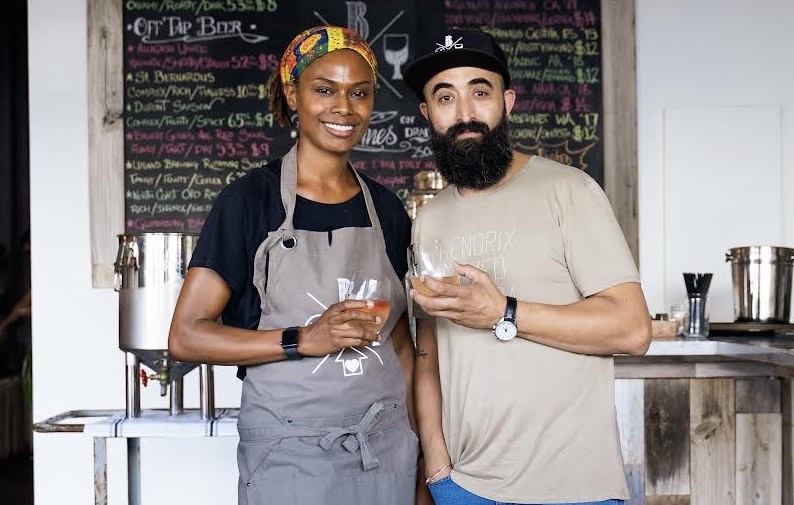

Do you consider Barsha a family restaurant? How does being a mom affect the way you run things?
LM: For sure. I have a very clear understanding of what it takes to raise a family and that makes me a more understanding boss. We want nothing more than our team to have that balance. Sometimes if I give too much here, I take away from the girls and the family, and vice versa. It’s always like a tightrope back and forth, so I think it’s helped me to be more understanding of our team and their situations.
Do a lot of families come in to eat here? I noticed you have a “For the Kiddos” section of the menu.
AM: Oh yeah. And we have dishes — [the grilled cheese and mac ‘n’ cheese] — named after our girls. Pash is nine and Sura is six. I actually just made a skin-contact orange wine from Tuscany and Pash drew the label. We have a very good friend, Anna Maria [of Val di Toro winery] in Tuscany, who helped me make this vermentino, which we just received. 100 bottles only. Pash has a gig now, because Anna Maria said next year she’s going to change all of her labels and Pash is going to draw them.
You’ve said that Barsha pays homage to the matriarchs in your life that have shaped you and your cooking. Can you expand on that?
LM: My mother has come a long way. She didn’t start off having that knowledge of cooking. But I do pay homage to her through her growth. [Adnen’s] mother taught me so much. When I went to Tunisia for the first time, I was blown away at how effortlessly she could create a feast. I’m always in awe of his mother, how quickly she can make a meal happen, and how flavorful and beautiful she can make her dishes.
How does Tunisia feature in your wine shop and wine bar?
AM: We have Hamsa ceramic [dip dishes] that look like a hand. We bought them in Tunisia, they’re handmade and hand-painted. And we make our own dips including date tapenade, hummus, mint-feta pesto, and Tunisian chile paste (harissa). We serve them with Tunisian olives and bread. Lenora makes amazing Tunisian spiced almonds with olive oil, honey, and tabil — which is 10 different spices blended together. It’s kind of like the curry of Tunisia: It has caraway, coriander, fennel seeds, white pepper, and more.
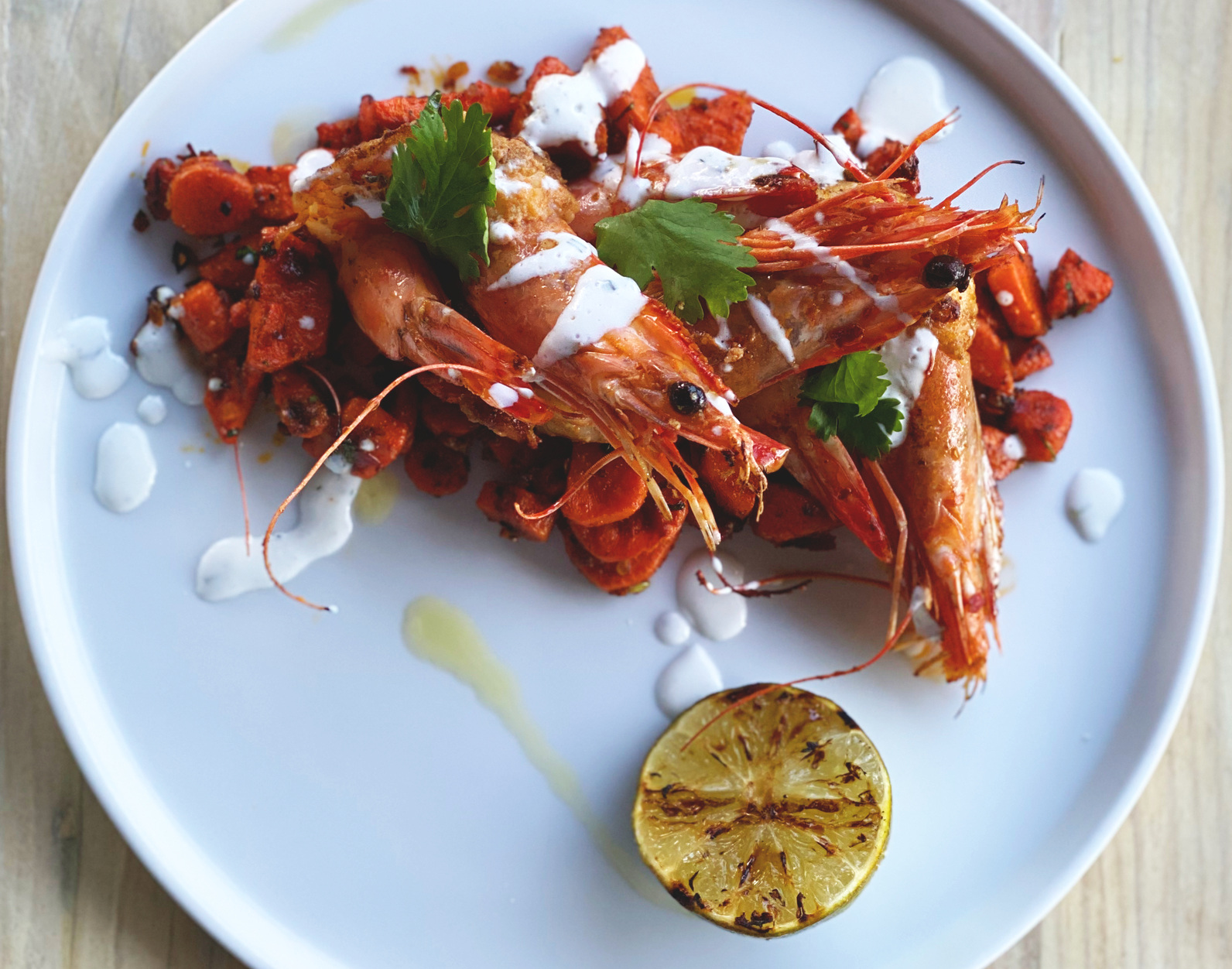
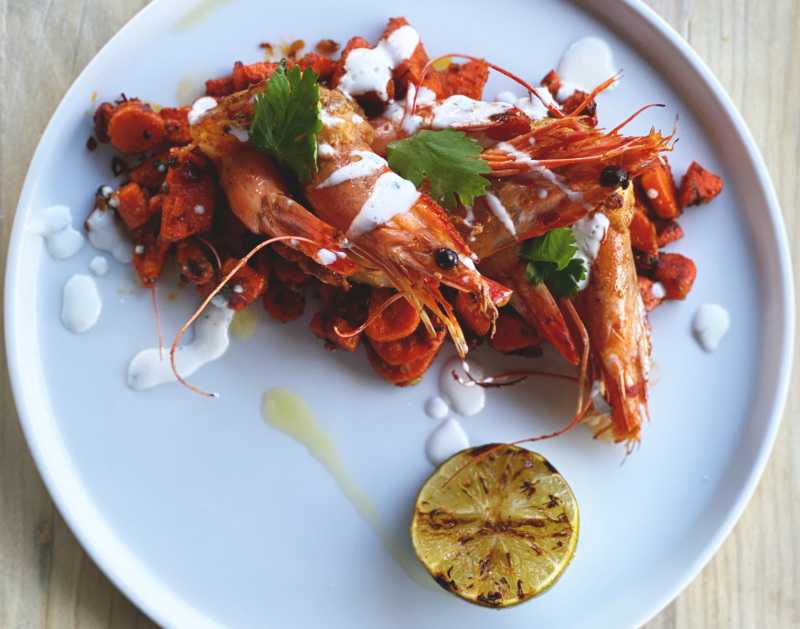
What has the reception been like for Barsha in the South Bay?
LM: We opened right before the pandemic, in late 2019. We couldn’t do it without our community. The times that we had to close down were the hardest. That was an absolute shift. But we had great support.
AM: We love our customers in the South Bay, they really stood behind us and support us. They like our flavors, even though they might be a little different. [During the pandemic] we had a family meal, which was Lenora’s idea. It was a set menu to feed four people. She came about it because we have two daughters, so we are a family of four. It’d be a fried chicken with salad and biscuits, lasagna with bread and salad …
LM: It was a whole spread. We knew that during that time families needed each other more than ever and were kind of stuck together. It was comfort food with Tunisian flavors. Seafood linguine, meatloaf, things like that.
What’s next for you, and for Barsha?
AM: She’s working on a book.
LM: A cookbook.
AM: A cookbook, but one that’s also about family and lifestyle. It’s not just recipes, there are going to be tips about wine too, and tips about life.
Emily Wilson is a Los Angeles-based food writer from New York. She has contributed to Bon Appétit, Eater, TASTE, The Los Angeles Times, Punch, Atlas Obscura, and more. Follow her on Twitter and Instagram. Follow Resy, too.


